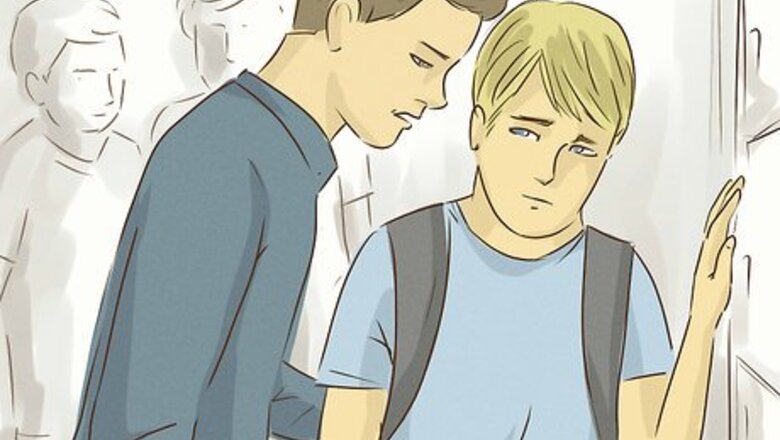
views
Winning the Fight
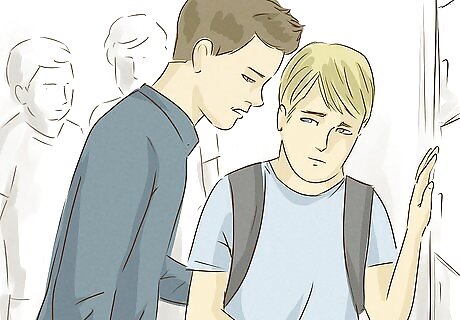
Pay attention to know when a fight is coming. You usually have warning when someone is about to start a fight. They may be throwing insults at you, acting aggressively, and getting in your space. These are all signs a fight may be coming. If you're prepared, you'll be more likely to win the fight or at least come out of it with less harm. If you notice these signs, start taking action, such as getting in a defensive position or calling for help.
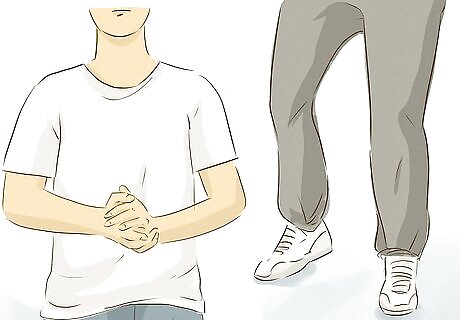
Start in a defensive position with a prayer-like stance. Don't put your fists up like you're ready to fight. Instead, put your hands in front of you with your palms together. Keep your elbows low and against your sides and spread your feet shoulder-width apart with your dominant foot slightly in front. In this position, you're ready to defend vital parts of your body. For instance, you can bring your hands up to block a blow to your face.
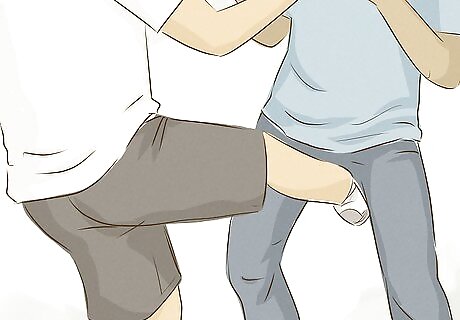
Aim to get a blow in as early as possible. Even though you don't want to throw the first punch, you do need to get a hit in early. That's because fights rarely last more than a few seconds, so if you can take them out early, you're more likely to win. If you see someone coming at you, try to deflect the blow and then do what it takes to slow the person down. Aim for the eyes, throat, groin, and knees when seriously defending yourself, as these can cause the most damage to your opponent. Keep your fist straight; otherwise, your wrist may break when you deliver a hard punch. Another option is claw at the person's face, as it will often shock them enough to slow down.
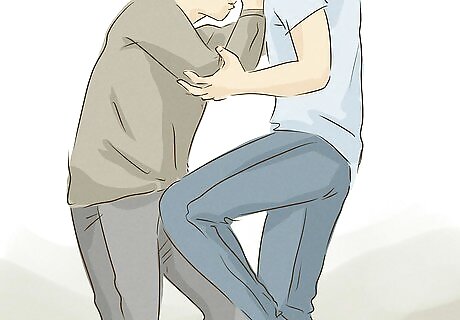
Get at the person with your knees and elbows. You're just trying to get the person to stop fighting you, so use what you can. Elbow them in the stomach if you need to or knee them in the leg or groin. Keep using your knees and elbows to attack the person so they stop attacking you. Note: When you need to defend yourself in a fight like this, don't worry about formal fighting rules. Go for the jugular on the sides of their neck, pressure points, temples, the space between the eyes, kidneys, groin, and back of neck. Don't be afraid to pull hair, bite, or use cheap shots. Seize the chance if you and your opponent are twisted to the side. Punch them in the side of the head. You could also push their head down and swing them to the ground.
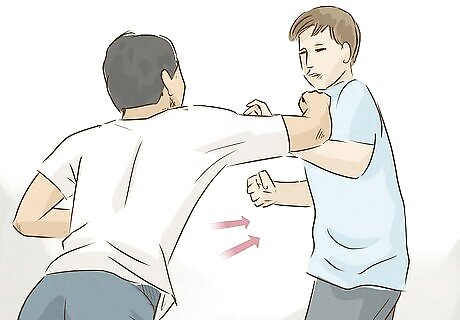
Move forward toward the person as you punch. If you keep moving back, that shows a defensive position, and you want to go on the offensive. Keep going at them until they admit defeat or go down to the ground.
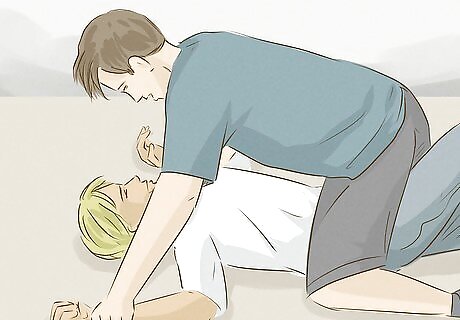
Pin your opponent to the ground when possible. If they fall, seize the chance to keep them there. Sit on top of them if they want to keep fighting. Hold them down until they surrender, someone comes to help, or they're too weak to fight anymore. Once a person goes down, stop hitting them. You could seriously injure them.
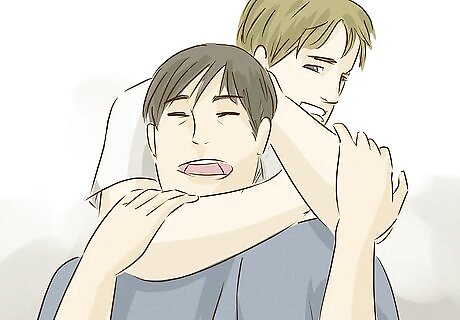
Be careful how you fight to try to avoid serious injury to your opponent. For instance, whenever you have someone in a choking position, be especially careful not to choke them for too long. As oxygenated blood flow to the brain decreases, a person becomes unconscious, but permanent brain damage or death can also occur within minutes if blood flow stops. After all, you might get away with just a suspension if you just beat up your opponent a little bit, but if you kill him, you will end up in prison. If your opponent is not breathing after they become unconscious, preform chest compression and contact emergency services (police and medical) immediately.
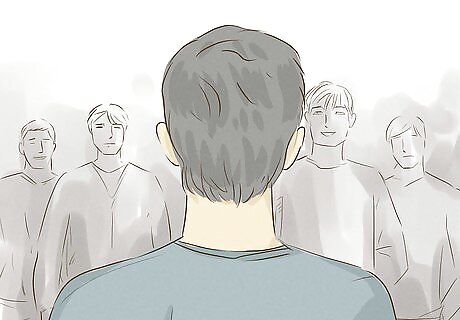
Remain calm against a large group. Understand that your focus should be to escape, not necessarily win the fight. The chances of beating a large group without help are low. Avoid showing your opponents that you're angry. When you fight, use your anger as energy against your enemies. Do not hesitate to call for help if the need arises. Although your reputation as a tough person may fall, bringing harm to your social status is better than losing your life.
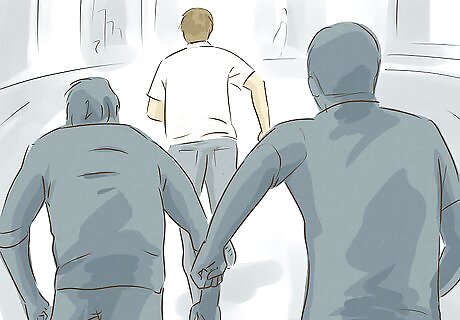
Run if you get the chance. If your opponent goes down and looks like they won't get up soon, take off. Don't give them the opportunity to get up and punch you again. Send help back if they look pretty bad off but get out of there if you can. If you end up on the ground, defend yourself as much as possible. Block your opponent's punches with your hands. If their punches are weak enough for you to handle, attempt to hit them back.
Avoiding a Fight
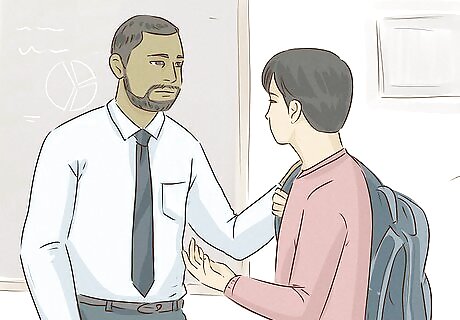
Report bullying when it happens. If you or someone you know is being bullied, talk to someone you trust, such as a coach, teacher, parent, or guidance counselor. Tell them what is going on so you can get some help with the situation. Some schools even have programs set up specifically designed to deal with bullying. Bullying is when someone is humiliated, made fun of, or abused over time by their peers. It's not just getting in an argument or even someone calling someone else bad names. It's not just a single incident, but an ongoing campaign against a person.
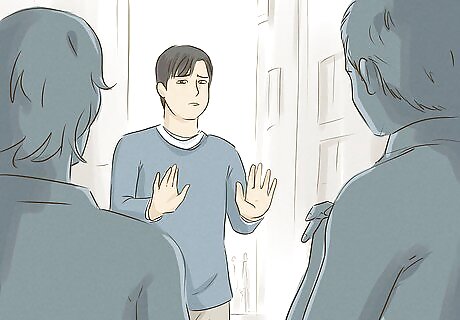
Walk away from the fight to avoid getting into trouble. Getting into a fight can get you into serious trouble, even if you didn't start it. Many schools have a zero-tolerance policy for violence, and you could be expelled from school or worse. If they continue to come after you, turn to face them, but maintain your distance. Keep them at arm's length at all times, as if they get closer, they can tackle or punch you. In some areas, you can even be charged with a crime, particularly if you're 17 or 18, depending on the legal age you become an adult in your state.
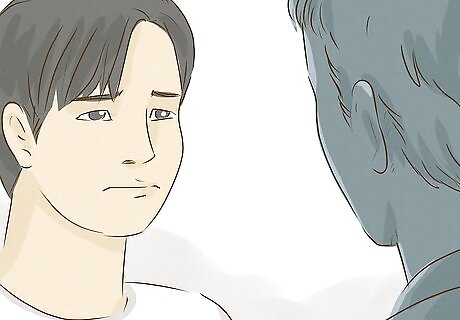
Look the person in the eye with confidence. Don't glare at them or stare at the ground. Rather, hold their gaze and show them you have confidence. If you show aggression, you can egg them on. If you show vulnerability, they may want to start the fight even more. Tip: Confidence and showing no fear will stop some people from fighting.
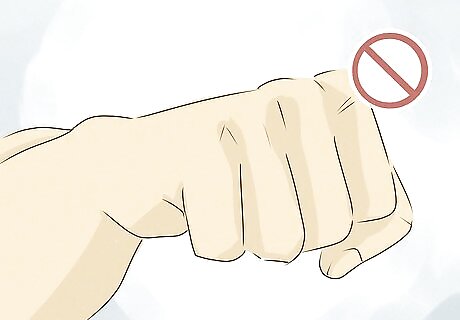
Avoid throwing the first punch. Starting a fight can get you in even more trouble than just defending yourself. Once you throw that punch, you never know how things are going to turn out. You could be seriously injured, ending up with broken teeth or even a concussion, or you could injure someone else just as badly. No matter what happens, whether you win or lose, you're still going to lose because there will be consequences. Try to find another way than throwing a punch. Walk away or find some help.
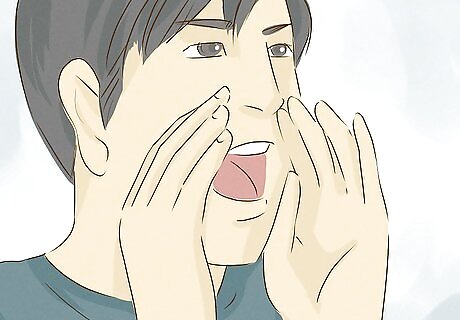
Get the attention of people nearby to help squash the fight. Some people will only fight you if there are no witnesses around, particularly if there are no teachers to see it. Yell as loud as you can to get people to come to your aid. If people arrive, you may not need to fight. Try yelling, "Fire," "Help, me I'm dying!" or "Call 911." Even though it is illegal it will work and make it out.
Finding Alternatives to Fighting
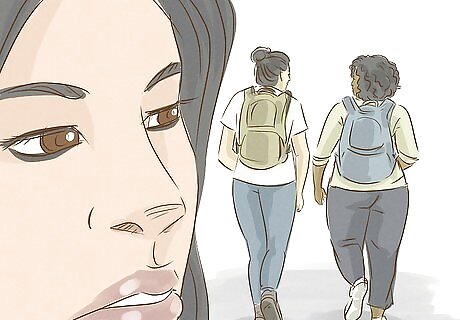
Ask a friend for help to protect yourself from bullying. Walking together with friends as often as possible can help deter bullies. They're less likely to attack if you're with others, as you're much stronger in a group. Plus, people with a large group of friends are less often the target of bullying.
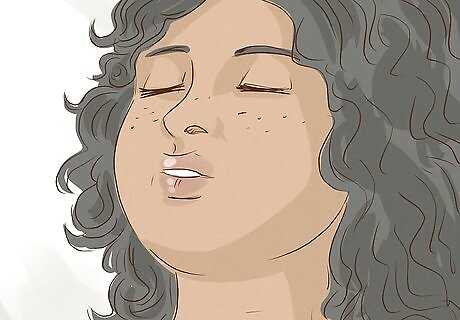
Take a deep breath to calm yourself down in hot situations. If someone says something rude or is trying to egg you on, your response may be to get into a fight. Getting angry is understandable, but you don't have to use that anger to give into violence. Take a few deep breaths and count to 10 in your head. That will help you calm down so you can think of something else to do. Try breathing in through your nose and out through your mouth. Take deep breaths you can feel in your stomach. If you need to, walk away for a few minutes to calm down.
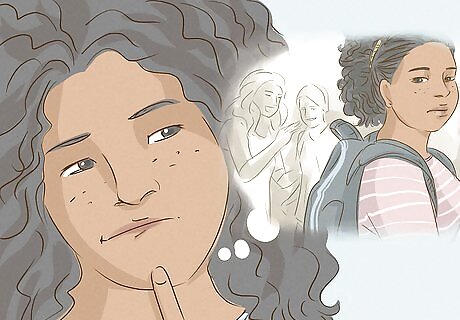
Run through the options available to you in your head. Think about what you can do in the situation you're in. You always have options when it comes to how you will react to a situation, so try to come up with a few scenarios. Think through the consequences of each one. For instance, if someone calls you a name you don't like, you could ignore them and walk away, start a fight, or call them a name back. Ignoring them may or may not get them to stop, but it definitely keeps you out of trouble. Starting a fight will likely get you in trouble and doesn't solve the issue. Calling them a name back may feel good in the moment, but it may also make the situation worse.
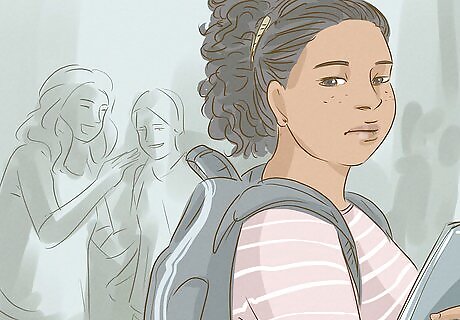
Pick the best option after thinking about how you can react. Once you've thought through the consequences of your reactions, choose the best one for the situation. In most situations, it's best to pick the one that de-escalates the situation and keeps you out of trouble. For instance, in the above situation, it's probably best to ignore the person and walk away if you can.
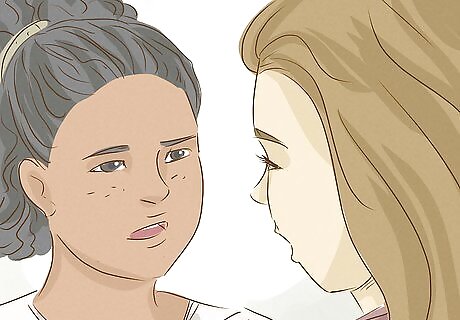
Learn to tell people calmly and firmly to stop what they're doing. If someone is bothering you and won't stop, react in a calm manner. Whether it's something like poking or pinching you or making fun of you, they're trying to get a reaction out of you. If you fail to react emotionally, it takes the "fun" out of it. If you need to, you can reinforce what you say with some light action. For instance, if someone is repeatedly pinching you, you can say, "Stop doing that now" in a calm and authoritative voice. If they persist, try grabbing and holding their hands for a moment and repeating what you said.

















Comments
0 comment